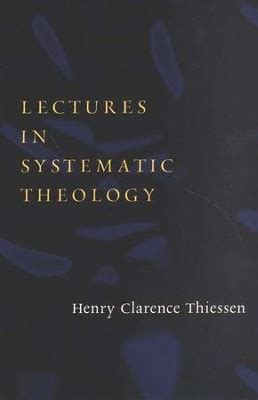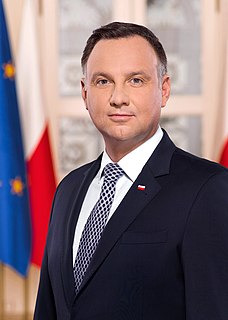A Quote by Hugh Ross
What's true will never contradict what's true. Article 2 of the Belgic Confession, based on Psalm 19, Romans 1, and several other texts, declares that God has given us two reliable revelations: the words of Scripture and the facts of nature. Thus, it would be impossible for the facts of nature ever to contradict the words of the Bible.
Related Quotes
The God who inspired the Bible is the same God who made the universe, Earth, and all life. This God is the very definition of truth; therefore nature's record will never contradict Scripture and vice versa. When a seeming contradiction confronts us, we can know with certainty we have either misunderstood (one, the other, or both revelations) or perhaps we haven't yet dug deploy enough. Whatever the case, we can embrace the opportunity to gain greater knowledge and appreciation for the Bible, for nature, and for the God who is responsible for both.
Our passions are the chief means of self-preservation; to try to destroy them is therefore as absurd as it is useless; this would be to overcome nature, to reshape God's handiwork. If God bade man annihilate the passions he has given him, God would bid him be and not be; He would contradict himself. He has never given such a foolish commandment, there is nothing like it written on the heart of man, and what God will have a man do, He does not leave to the words of another man. He speaks Himself; His words are written in the secret heart.
Facts are certainly the solid and true foundation of all sectors of nature study ... Reasoning must never find itself contradicting definite facts; but reasoning must allow us to distinguish, among facts that have been reported, those that we can fully believe, those that are questionable, and those that are false. It will not allow us to lend faith to those that are directly contrary to others whose certainty is known to us; it will not allow us to accept as true those that fly in the face of unquestionable principles.
The Bible is to the theologian what nature is to the scientist, a body of unorganized, or only partly organized facts. God has not seen fit to write the Bible in the form of a systematic theology; it remains for us, therefore, to gather together the scattered facts and to build them up into a logical system.
The blessed Paul argues that we are saved by faith, which he declares to be not from us but a gift from God. Thus there cannot possibly be true salvation where there is no true faith, and, since this faith is divinely enabled, it is without doubt bestowed by his free generosity. Where there is true belief through true faith, true salvation certainly accompanies it. Anyone who departs from true faith will not possess the grace of true salvation.
I think it's my job or the artist's job, to try and find some solution or some reason to accept things. But given the grimmest reality, I feel the grimmest facts are the real facts, the true facts: that you're born, you die, you suffer, it's to no purpose, and you're gone forever, ever, ever, and that's it.
Conscience is the voice of the soul, the passions are the voice of the body. Is it astonishing that often these two languages contradict each other, and then to which must we listen? Too often reason deceives us; we have only too much acquired the right of refusing to listen to it; but conscience never deceives us; it is the true guide of man; it is to man what instinct is to the body; which follows it, obeys nature, and never is afraid of going astray.
All nature has come to expect from God a sense of orderliness. Whatever God does carries with it His fingerprint. And in the world around us His fingerprint of orderliness is evident to anybody who is honest with the facts. If you look at nature, you will discover a mathematical exactness. Without this precision, the entire world would be in utter confusion. One plus one always equals two no matter what part of the universe you happen to be in. And the laws of nature operate in beautiful harmony, a harmony that is ordered by God Himself.
All good intellects have repeated, since Bacon's time, that there can be no real knowledge but that which is based on observed facts. This is incontestable, in our present advanced stage; but, if we look back to the primitive stage of human knowledge, we shall see that it must have been otherwise then. If it is true that every theory must be based upon observed facts; it is equally true that facts can not be observed without the guidance of some theory. Without such guidance, our facts would be desultory and fruitless; we could not retain them: for the most part we could not even perceive them.



































